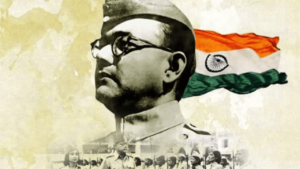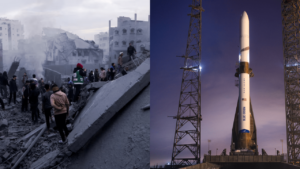Former US President Donald Trump to meet PM Modi next week. While calling Modi a “fantastic man,” Trump has also criticized India as a “very big abuser” in trade.

Former U.S. President Donald Trump has once again captured attention with his candid remarks, this time directed at India and its trade policies. Speaking at a campaign event in Michigan on Tuesday, Trump made headlines by criticizing India as a “very big abuser” of trade ties, yet simultaneously praising Prime Minister Narendra Modi as a “fantastic man.” As tensions simmer over tariffs and trade imbalances, Trump announced that he plans to meet Modi next week during the Indian leader’s visit to the U.S. from September 21 to 23.
The upcoming meeting is poised to be significant, given the personal rapport between the two leaders, yet it also underscores the persistent trade challenges that have long strained U.S.-India relations.
The Context: India’s Tariffs and Trump’s Criticism
Trump’s critique of India’s trade practices isn’t new. During his presidency, he frequently took issue with the tariffs India imposes on American goods. The former president has often claimed that India takes advantage of the U.S. by levying high import duties, particularly on products like motorcycles and medical devices. In his Michigan speech, Trump reiterated this point, emphasizing, “India is a very big abuser of our trade system.”
Despite these harsh words, Trump also praised Modi, calling him a “fantastic man” and highlighting their warm personal relationship. This dual approach—criticizing India’s trade policies while lauding Modi—reflects a complex dynamic between the two nations. Trump’s remarks signal that while personal diplomacy between the leaders may be strong, significant policy differences, particularly in trade, continue to exist.
Modi’s US Visit: A Diplomatic Power Play
Prime Minister Narendra Modi’s U.S. visit, scheduled for September 21-23, is set to be a major diplomatic event. Modi will attend key international meetings, including the Quad Leaders’ Summit hosted by President Joe Biden in Wilmington, Delaware. The summit will also feature Australian Prime Minister Anthony Albanese and Japanese Prime Minister Kishida Fumio, focusing on regional security and cooperation, particularly in response to China’s growing influence in the Indo-Pacific.
Following the Quad Summit, Modi will travel to New York to participate in the ‘Summit of the Future’ at the United Nations General Assembly (UNGA). The summit, centered around the theme “Multilateral Solutions for a Better Tomorrow,” will offer Modi the chance to address global leaders on critical issues such as climate change, global health, and sustainable development.
In addition to these high-profile events, Modi will engage with the Indian diaspora in Long Island and interact with CEOs of leading U.S. companies, particularly in sectors such as artificial intelligence, quantum computing, and biotechnology. Strengthening economic and technological collaboration between the two nations will be a key focus of Modi’s trip.
US-India Trade Relations: A Persistent Challenge
While the personal camaraderie between Trump and Modi is undeniable, the U.S.-India trade relationship has often been fraught with tension. India’s protectionist policies and high tariffs on American products have been a longstanding point of contention. Trump’s administration had imposed retaliatory tariffs on Indian goods, though these did little to resolve the core issues.
India, in turn, has argued that its tariffs are necessary to protect its growing industries and address its domestic economic challenges. The nation has consistently sought to balance its trade deficit with the U.S. while fostering more investment and trade partnerships.
With Trump’s recent comments, it’s clear that these trade disputes remain unresolved. Whether a potential meeting between the two leaders can help bridge the gap is uncertain, but it does highlight the complexity of navigating U.S.-India relations in a post-pandemic world where global trade dynamics are shifting.
The Personal Dynamic: Trump and Modi’s Relationship
The Trump-Modi relationship has been a unique feature of recent U.S.-India diplomacy. Both leaders have hosted grand rallies for one another in their respective countries. In 2020, during Trump’s visit to India, Modi welcomed him with the “Namaste Trump” event in a massive cricket stadium, attended by over 100,000 people. The spectacle was a testament to the political theater both leaders excel at, and it underscored the warmth of their personal bond.
Similarly, in 2019, Modi held a rally with Trump in Houston, Texas, during the “Howdy Modi” event, further solidifying their public camaraderie. Despite the warmth of their personal relationship, Trump has not shied away from addressing the trade disparities between the two countries.
The upcoming meeting may very well focus on reinforcing the personal rapport between Trump and Modi, but the underlying economic disputes will likely remain a point of contention.
Looking Ahead: What’s at Stake?
As the U.S. prepares for its presidential election in November 2024, Trump’s engagement with world leaders, including Modi, takes on added significance. While Trump is running as the Republican candidate, his relationship with Modi allows him to showcase his foreign policy credentials, particularly in balancing strong personal relationships with addressing tough trade issues.
For Modi, this visit to the U.S. represents an opportunity to strengthen India’s global standing, particularly as the country emerges as a key player in geopolitics. Modi’s interactions with Trump, as well as President Joe Biden, will be closely watched as indicators of India’s evolving role in the global landscape.
In conclusion, the scheduled meeting between Trump and Modi comes at a critical juncture for U.S.-India relations. While trade disputes remain a thorny issue, the strong personal relationship between the two leaders could serve as a foundation for further diplomatic and economic cooperation. As both nations navigate a complex global environment, the upcoming discussions may offer insights into the future trajectory of their bilateral ties.
Read Next:

The Psychology of Love: Why Valentines Day Matters More Epic Than You Think
Discover the psychology of love and why Valentines Day is more important than you think. Learn how love impacts the brain, strengthens relationships, and boosts

Premier League Highlights: Arsenal Humiliate Man City 5-1, Spurs and Palace Secure Crucial Wins
Arsenal demolished Manchester City 5-1 in a statement premier league highlights win, reigniting their title hopes. Meanwhile, Crystal Palace stunned Man United 2-0, and Tottenham

How Budget 2025 Impacts the Indian Middle-Class: Major Tax Benefits and Glaring Omissions
Budget 2025 offers major tax relief to the middle class, including zero tax on incomes up to ₹12 lakh. However, it misses out on incentives

Degrees vs Employability: Why “Highly Qualified Degree Holders” Struggle to Find Jobs While “Less Qualified Individuals” Get Hired Faster!
Many highly qualified individuals struggle to secure jobs, while less qualified candidates get hired quickly. This Degrees vs Employability paradox is caused by employer preferences,

The Power of Mindset: Why Looking Poor Doesn’t Make You Poor, but Thinking Poor Does!
Discover why looking poor doesn’t define your wealth but thinking poor does. Learn the power of mindset and how a growth-oriented mindset can lead to

Overthinking: How It’s Damaging Today’s Youth – Causes and Cure in 2025
Understanding how overthinking is silently damaging today’s youth, from its causes rooted in societal pressure and social media to its long-term effects on mental health.

Netaji Subhash Chandra Bose: An Epitome of Epic Leadership
Discovering the incredible life of Netaji Subhash Chandra Bose, a leader whose vision, courage, and determination redefined India’s freedom struggle. Explore his leadership qualities, ideology,

Global News Headlines Today: From Gaza Ceasefire to Blue Origin’s Massive 2025 Milestone
Explore today’s top global news headlines, from the Gaza ceasefire and Blue Origin’s historic spaceflight to Apple losing its top spot in China’s smartphone market.

The Hidden Danger of Social Media Nudity: A Threat to Today’s Youth in 2025
Understanding how social media nudity is impacting the youth and their future potential. Learn about the risks of unregulated content, cultural sensitivities, and solutions for
